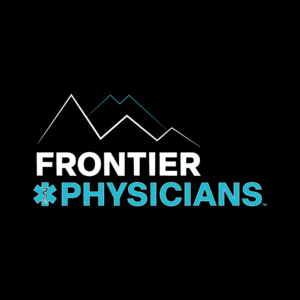CEO Update: Cancer Care
 Last month I had the opportunity to present at the Cancer Prevention and Control Research Network meeting on rural health and cancer in Colorado. It is a topic near and dear to my heart as I have had several family members with cancer and few of them meeting untimely ends due to lack of early diagnosis.
Last month I had the opportunity to present at the Cancer Prevention and Control Research Network meeting on rural health and cancer in Colorado. It is a topic near and dear to my heart as I have had several family members with cancer and few of them meeting untimely ends due to lack of early diagnosis.
Did you know that cancer is listed in many of our rural community’s Community Health Needs Assessments as a top priority? Unfortunately, we don’t always have the access and treatment that is needed and available in our rural communities. Other obstacles include lack of health insurance, with 14% of rural adults being uninsured, and 39% covered by public insurance. As I mentioned last month, a shortage of providers in rural at all levels and sometimes a lack of trust for our health system or a “I’ll tough it out attitude” contributes to late diagnosis. This presents itself as an equity opportunity for rural communities.
Cancer is one of the top four leading causes of death in Colorado and with the pandemic over the past two plus years, many individuals put off receiving the routine screenings and follow-up necessary to detect cancer in the early stages. In fact, approximately 30% of rural adults are unscreened, putting them at higher risk of not being diagnosed in early treatable stages.
Over 722,000 people or 12% of Colorado’s population lives in rural and frontier counties. Yet only 61.5% of people aged 50-74 years reported being up-to-date on mammogram screenings compared to 73% in urban. For colorectal screening only 60.9% of people aged 50 – 75 years in rural report being up-to-date compared to 70.4% in urban. The Colorado Cancer Incidence from 2016-2018 shows that in general cancer tends to be higher in rural with the state reporting 396 cases out of 100,000 people. When you break that down in a rural community the numbers become more real. For example, in Baca County, a county with 3,570 people, 392 are reported as having cancer and nearly 180 people have died. That is significant for a small rural county.
While not all medical specialties can be offered in rural there is an opportunity for rural residents to receive screening for cancer and in some cases treatment in their own communities.
Additionally, there are opportunities to engage community health workers, patient navigators and care coordinators. If this is your title or you have a similar role in our rural communities we invite you to get involved in our Community Health Worker/Patient Navigator Network. CRHC just began this workgroup and will be hosting a bi-monthly meeting series to connect Community Healthcare Workers, Patient Navigators and other staff with patient coordination/support responsibilities in rural communities around the state. The main goals of this workgroup are to:
- Create a network of individuals to provide education and training relevant to your field in order to expand your reach and increase access to care.
- Provide individuals in rural communities in patient support roles the ability to learn from one another and to have a network of people in these roles across the state to call on for issues unique to rural Colorado and this profession to brainstorm, share best practices or to share challenging issues going on in individual communities.
Together we’ll help ensure access to care in our rural communities. To learn more about this workgroup please reach out to Emilee Vustka at evuksta@coruralhealth.org.

